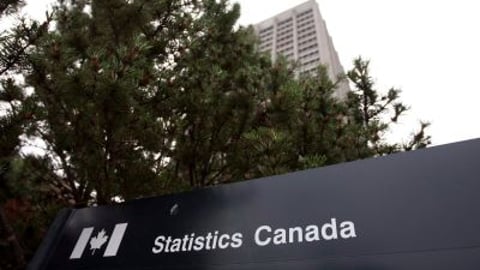Liberals, NDP pass bill to enact two-month GST holiday in House of Commons
The Liberals' GST holiday bill is one step closer to becoming law after it was passed by a majority of the House of Commons late Thursday night.
The two-month tax break covers dozens of items, including children's clothes and toys, video games and consoles, Christmas trees, restaurant and catered meals, wine, beer, candy and snacks. It would take effect on Dec. 14 and run until Feb. 15, 2025.
The government announced the plan as a way to ease affordability concerns during the holiday period. At the time, they also pledged to send $250 rebates to working Canadians in the spring, but that particular measure was not included in the bill.
The legislation to enact the tax break was the first bill passed through the House of Commons since late September, and required some procedural wrangling from the Liberals and the NDP to curtail the usual debate.
For more than two months, government business in the House has been on pause as the Conservatives filibuster a privilege motion related to misspending at a now-defunct green technology fund.
That debate, which has taken precedence over nearly all other House business, was paused in order to proceed with voting on the GST bill on Thursday.
The Conservatives and Bloc Québécois voted against the legislation.
Conservative Leader Pierre Poilievre, who is a vocal advocate for cutting taxes, said earlier on Thursday that the GST break "isn't a tax cut." "This is an inflationary, two-month temporary tax trick that will drive up the cost of living," Poilievre said.
He said his own proposals to scrap the federal fuel charge and cut the GST changed on new home builds under $1 million are "about sparking production."
"By axing the carbon tax, our businesses can hire more workers and produce more goods. By axing the sales tax, we're going to get 30,000 extra homes per year," he said.
In a statement on Thursday afternoon, NDP Leader Jagmeet Singh accused Poilievre of "bootlicking for billionaires."
"When Poilievre was in cabinet, the Conservatives slashed corporate tax for multi-billion-dollar corporations to 15% from 22$," Singh said. "Now he’s whining about middle-class families saving a little money over the holidays."
During Thursday night's debate, Bloc MP Marilène Gill said the list of items exempted from the GST was "completely arbitrary" and it must have been drawn up on the fly.
Green Party Leader Elizabeth May said the measure is "transparently a vote-buying scheme," but said she was struggling with how to vote because so many Canadians need help. "It's not good policy. Whether it's good politics, we'll see," she said during the debate.
May, who was the only party leader in the House of Commons during the late-night debate, voted in favour of the bill.
The government said a person who spends $2,000 on eligible items over the two-month period will save between $100 and $260, depending on the province.
The four Atlantic provinces and Ontario have a harmonized sales tax, which means the entirety of that — 15% in the Atlantic and 13% in Ontario — will be lifted.
Other provinces will only save the five per cent GST unless those governments choose to lift their provincial sales taxes as well.
Ottawa has not offered compensation to offset provincial revenue losses for governments that choose to match the tax cut.
The temporary tax cut is expected to cost the federal government about $1.6 billion.
Ontario said Wednesday it will cost its treasury about $1 billion to remove the provincial portion of the harmonized sales tax off the same items, though several things covered by the federal GST holiday are already permanently exempted from the provincial portion.
The NDP only agreed to support the bill after the Liberals separated the GST break from a promise to also send $250 to some 18.7 million working Canadians in the spring.
The NDP and the Bloc want that benefit expanded to non-working seniors and people with disabilities who don't have employment income.
It is not clear when that measure will come before the House of Commons for debate.
The bill, known as the "Tax Break for all Canadians Act," will now go to the Senate.
READ: CICC raises concerns about federal government’s GST holiday plans
CICC responds to GST holiday bill
The Convenience Industry Council of Canada (CICC) had earlier raised concerns about the GST holiday when it was announced. It said while many of the items that are eligible for GST exemption are sold in convenience stores, “we have outstanding questions about application to certain products including energy drinks. The response from business groups has been mixed, with Canadian Federation of Independent Business pointing to product applicability and implementation confusion. Restaurants Canada and Retail Council of Canada have supported the proposal.”
Upon the announcement of the "Tax Break for all Canadians Act” moving from the House of Commons to the Senate the CICC said it has taken many questions from its members in regards to the proposed GST holiday and what items are to be covered.
Currently energy drinks and isotonic (sport) drinks such as Gatorade, PowerAde and Body Armor are included, while other eligible beverages such as Boost, Muscle Milk, and Vitamin Water are believed to be included. The CICC is still seeking clarification around items that can be classified as “Dietary Supplements”, such as protein powder and vitamins.
For its members, the CICC also made available a set of key recommendations and considerations that convenience store operators will have to deal with:
- Compliance and implementation – Be prepared to implement the temporary GST/HST relief changes at checkout. This includes reviewing product tax categorization against the list of qualifying goods, preparing to update POS systems to remove the GST/HST on qualifying goods and ensuring that staff are trained on the new procedures. However, the tight timeline for making these updates and providing training, especially for smaller businesses with limited resources or businesses with complex POS systems may restrict how quickly and effectively businesses can implement these changes.
- Documentation and record-keeping – Maintain accurate records of sales transactions during the relief period to ensure compliance with the temporary tax break. This includes documenting the qualifying goods sold and the GST/HST relief applied. Proper documentation will be crucial for audit purposes and to avoid potential disputes with the CRA. Also, be prepared for the December 2024 and February 2025 monthly GST/HST returns to be more complex because the relief period starts and ends mid-month.
- Communication with customers – To ensure a smooth transition, you must be prepared to communicate the GST/HST relief to your customers once further details are released.
- Importation of qualifying goods – As the GST/HST relief will also apply to the importation of qualifying goods during the relief period, businesses and/or consumers that import these goods must be aware of the relief and comply with the necessary documentation and reporting requirements to ensure that the GST/HST is not overpaid when the goods are imported into Canada. This may require importers to carefully review the import documentation prepared by the customs broker, since the import GST/HST is commonly paid by the broker on the importer’s behalf.
With files from the CICC




